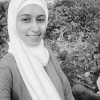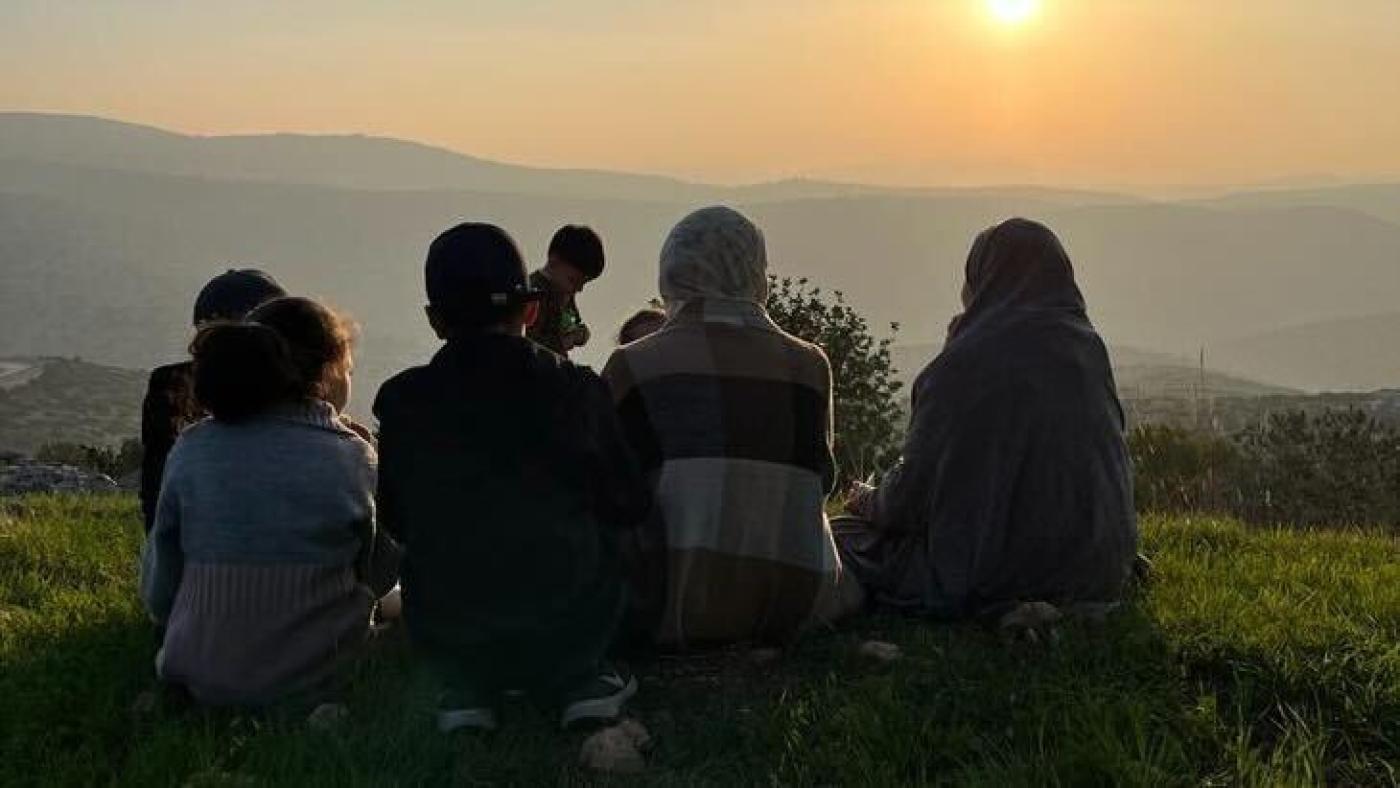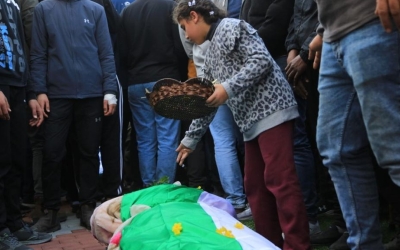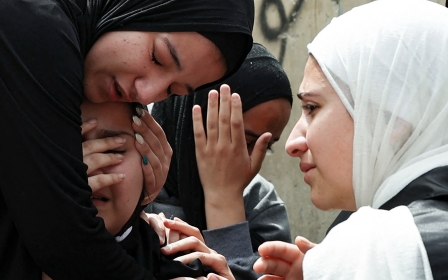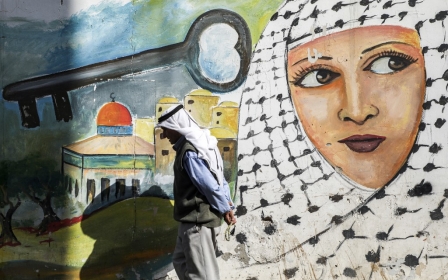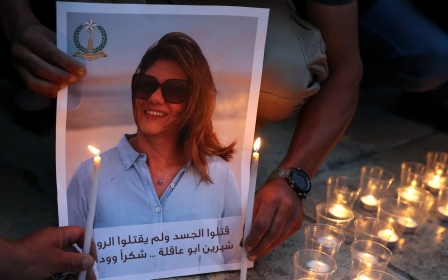A letter from Jenin: Motherhood, grief and freedom songs
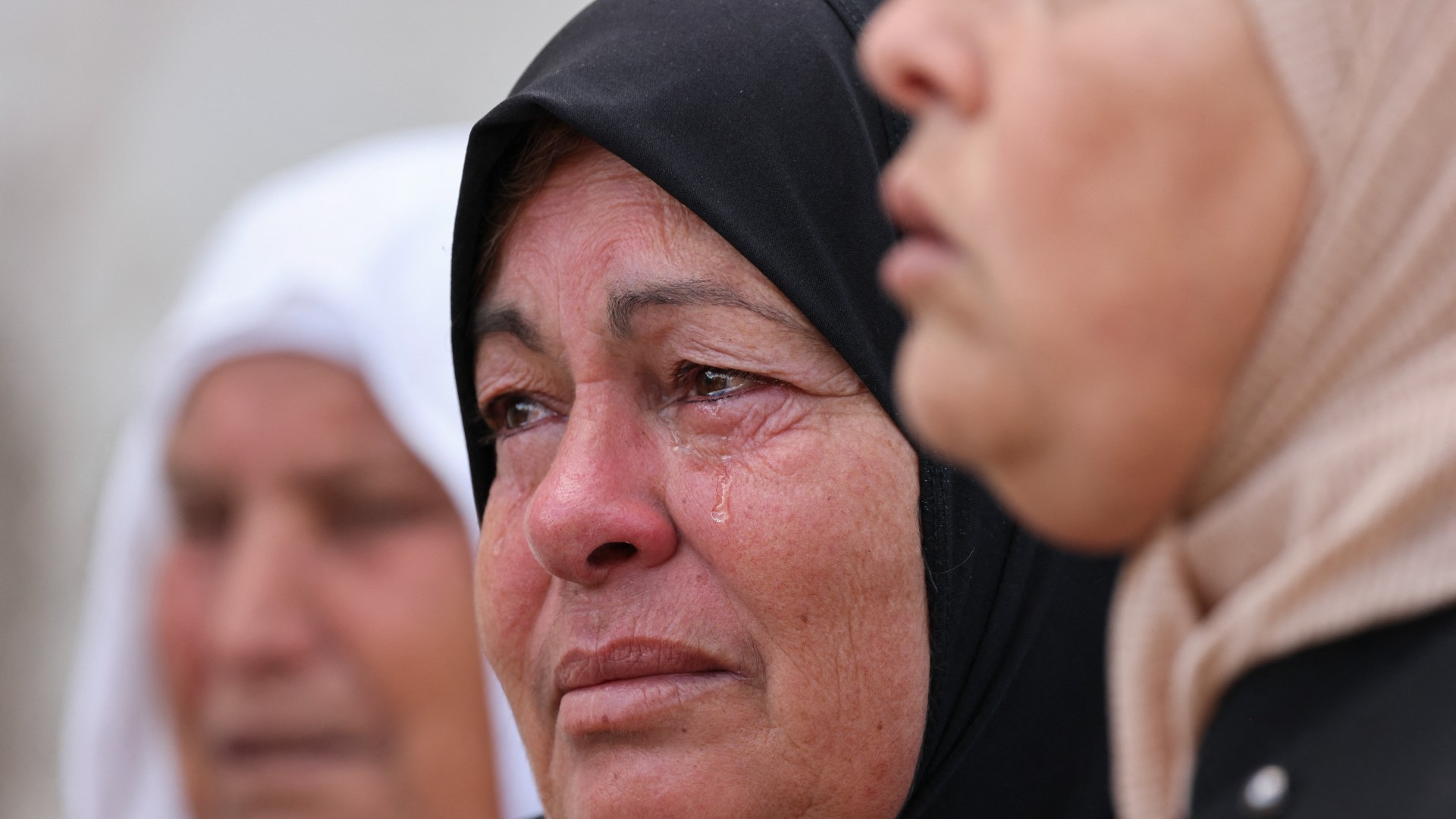
When I moved to Jenin in May 2020, I hadn’t quite imagined what it would be like living there. I thought I would enjoy sunny mornings with my small family, sipping coffee on our balcony that overlooked Marj Ibn Amer and villages to the northeast. I pictured quiet nights, punctured only by the occasional cries of my baby, like the times I used to share with my mother in her “paradise” overlooking the Nablus hills.
I say “paradise” because my mother had transformed her concrete balcony into a lush, green oasis. That’s what mothers do - they bring everything to life. But during the first week of my marriage, after moving to Jenin, the image that had formed in my mind quickly began to change.
The shooting around us gets louder as the night drags on, and it isn't safe to venture outside. All we can do is wait and pray that morning comes quickly
Instead of the idyllic existence I’d imagined in Jenin, shots could be heard at any time of day - especially after midnight, at dawn, and in the early morning hours. My home sits just a few metres from the Jenin refugee camp, and there’s not a night that goes by without Israeli occupation forces storming the camp or other neighbourhoods in this small city.
ّIn the evenings, obituaries of martyrs are recited from the minarets of the neighbourhood mosque, which I can see from my window.
In August, just three months after I arrived in Jenin, we woke up at dawn to the sound of clashes between members of the resistance and occupation forces, who had stormed our neighbourhood. Ambulance sirens could soon be heard, as news emerged that a woman had been injured after having arisen at dawn to breastfeed her baby.
New MEE newsletter: Jerusalem Dispatch
Sign up to get the latest insights and analysis on Israel-Palestine, alongside Turkey Unpacked and other MEE newsletters
As she tried to close one of her windows to protect her child from tear gas launched by Israeli forces, a bullet struck her. It reportedly penetrated her liver, pancreas and aortic artery, and Dalia Samoudi, 23, died of her injuries. Her home was just a few buildings from mine.
Her name remains forever etched in my memory. And these same scenes have been repeated over and over again. A grandmother from Jenin camp, Majda Obaid, was killed by gunfire in the “safety” of her home earlier this year while praying for the protection of Palestinian youths.
Growing fear
Last March, I was blessed with a beautiful daughter. This is when the burden became even heavier, since motherhood only intensifies the sense of fear. Every time I hear shots being fired, usually very close by, I worry that a bullet will hit my daughter or my husband. I think about shepherding them to relative safety in the kitchen, which is the lowest part of the house and has no windows or vents.
During periods when incursions are occurring weekly, I urge my husband to leave for work a little later, as he usually heads out towards Tulkarem straight after dawn prayers, the most popular time for raids. I insist that he waits until the army withdraws from the city, no matter the repercussions.
When my baby cries all night, I worry that she could be ill or in pain. Even when we cannot calm her down, we know that any attempt to go to the hospital would be extremely dangerous. The shooting around us gets louder as the night drags on, and it isn’t safe to venture outside. All we can do is wait and pray that morning comes quickly.
At the same time, I am a journalist, which means I always have to be at the heart of the action. Even if I’m not working in the field, I am conducting phone interviews with mothers and wives of martyrs and detainees. As such scenes become an almost-daily occurrence, with more and more people killed, emotions become hardened as everyone adjusts to the new normal.
Still, each time I attend a funeral and see a coffin swathed in the Palestinian flag, or when I speak with the families of the victims, I feel my heart torn apart. Tears fall against my will.
Reporting on tragedy
On the morning of 16 August 2021, we awoke to a new tragedy. Four young men had been shot dead by Israeli forces, who seized two of the bodies. But what made it even more distressing was that one of the martyrs had lived next door to me. His father often recited the call to prayer at the mosque, while his mother had prepared a suhoor buffet on Laylat al-Qadr during Ramadan that year.
I didn’t know Nour el-din Abdullah Jarrar personally, but I knew his kind-hearted family, even if it was only a superficial acquaintance. That afternoon, I got dressed and headed to their home to report on the incident and to offer my condolences. The whole family was devastated, having been denied even a farewell.
Last October, a doctor and resistance fighter, Abdullah Abu al-Teen, was killed by Israeli forces. I interviewed his wife, who spoke about his loss with overwhelming love and profound sadness. Although I usually consider myself stoic, I wept silently. After the interview, I embraced her - and then stood there feeling helpless, unable to offer any words that could console her.
The most difficult morning I ever experienced, however, was the day I awoke to a phone call from my boss. “Shireen Abu Akleh was killed,” he told me. “Follow the story urgently.”
In shock, I quickly scrolled through the latest news to understand what had happened. I looked at photos and videos documenting the incident. I replayed them dozens of times, and that’s when I could no longer hold myself together. Abu Akleh had been killed a few metres from my home, wearing a vest identifying her as a journalist. I couldn’t believe what was happening - and to this day, I have not been able to get over her death.
Honoured and proud
Perhaps such incidents would be less challenging for other people in my generation who lived through the Second Intifada and its aftermath, trapped with their families in their homes for days or weeks amid curfews and incursions. They witnessed bloodshed and members of their families being dragged to detention centres.
But for me, growing up in Nablus, this all seemed new, even though we were raised to believe in the Palestinian cause from an early age. Patriotic anthems were an integral part of our daily lives. We followed the intifada and subsequent wars on Gaza from our television screens, watching news more than cartoons. Wherever we went, we were the voice of Palestine.
On Al Jazeera, we watched news of the assassination of my uncle - my father’s youngest brother and the one closest to his heart - by Israeli occupation forces. For the first time, I saw my father cry.
As I walk along the streets of Jenin, I hear the strains of patriotic songs about the city's martyrs
But living in Jenin and being at the heart of the action is a very different matter. On my way home from university, as I walk along the streets of Jenin, I hear the strains of patriotic songs about the city’s martyrs; sometimes the music drifts across the cornfields, or from the windows of a passing car.
One day, I got on the bus that will take me to our neighbourhood, I heard a woman tell the driver: “Drop me off at the house of the Sabarany, my dear.” A young man sitting two seats away turned to her. “Are you Diaa’s mother, auntie?” he asked. “May he rest in peace. He was my friend.”
As the bus rolls on, we pass tokens of remembrance placed on locations where martyrs were killed, atop their blood stains. Just a few metres separate each token. For me, they trigger deep reflection. The mothers of the martyrs are my neighbours; they take the same bus as me, and walk the same streets, and pray in the same mosque. This makes me feel truly honoured and proud.
The views expressed in this article belong to the author and do not necessarily reflect the editorial policy of Middle East Eye.
Middle East Eye delivers independent and unrivalled coverage and analysis of the Middle East, North Africa and beyond. To learn more about republishing this content and the associated fees, please fill out this form. More about MEE can be found here.


